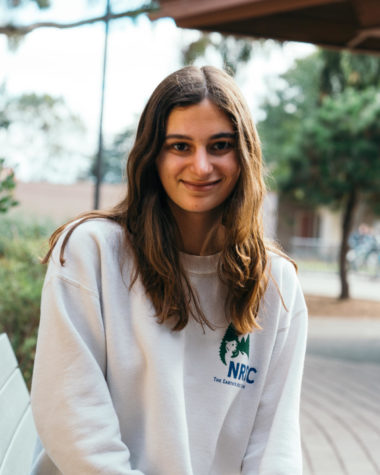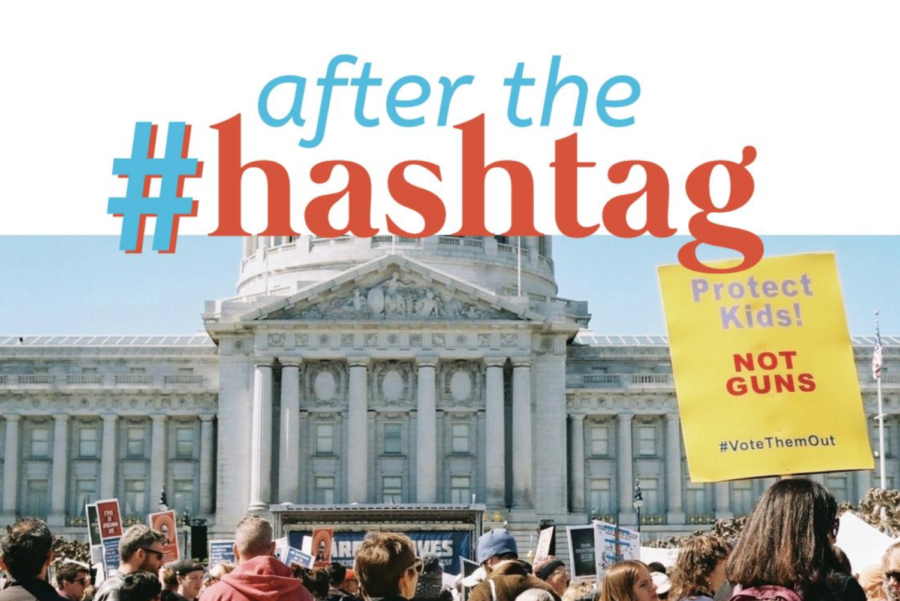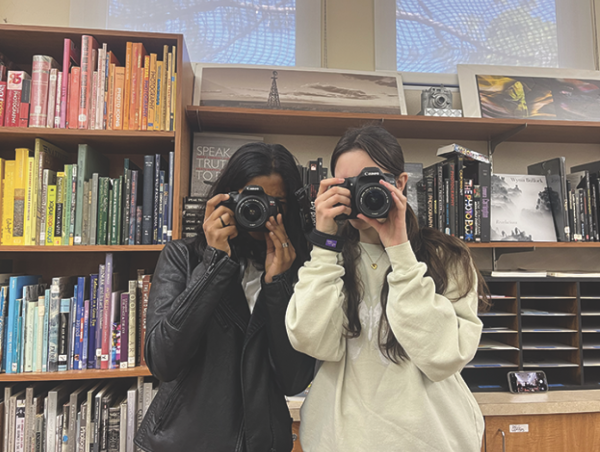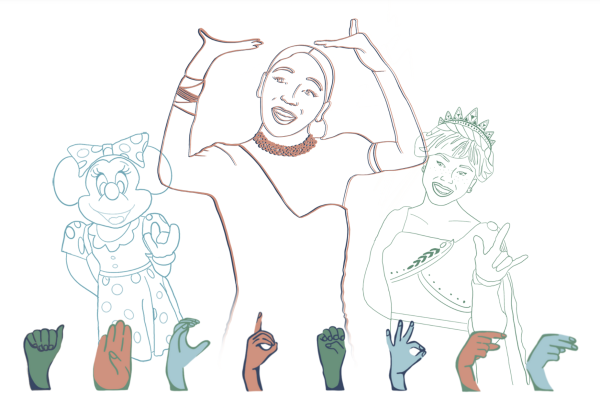After the Hashtag
Although the iconic hashtags of viral social movements brought nationwide attention to their causes and left lasting effects, when they fall out of the public eye, many are left unsure if they have brought about substantial change.
#MeToo
The iconic #MeToo movement first went viral on Twitter in October 2017 as a way to share experiences and jumpstart the conversation around the ever-so-taboo topic of sexual assault and harassment. Tens of thousands of people supported the cause, including celebrities such as Angelina Jolie and Terry Crews. The heavily publicized Larry Nassar case only further fueled the #MeToo movement, with more than 160 victims, including Olympic gymnast Aly Raisman, finally finding justice.
“The #MeToo movement has undoubtedly had a profound impact on the way women and survivors in general feel about their experiences,” Palo Alto High School junior Emma Donelly-Higgins said. Although many who spoke out did not the receive closure they deserved, the process of sharing their stories contributed to the formation of a supportive, online community of women, many of whom were finally able to voice the damaging and terrorizing experiences of their own lives.
Now, in 2018, the use of the hashtag has greatly died down, but there have been several concrete efforts against sexual assault and harassment due how widely recognized the movement is. The program MeTooK12 was created, in response to this viral phenomenon by the group ‘Stop Sexual Assault in Schools’, with the goal of ending sexual abuse in education. “#MeToo also initiated an important discussion not only online but also in face-to-face settings and in everyday life,” Paly alumna Ida Sunneras Johnson said. “There’s a newly found awareness and a sense of solidarity for people who have previously felt alone in their experiences and trauma.”
The hashtag’s impact extended far past social media, as the U.S. House of Representatives passed a #MeToo bill in February with the Senate following in May. It would remove a multiple-month-long waiting period for federal government staffers who want to file a complaint against a congressperson, establishing personal liability by ending previously secluded sexual harassment settlements to victims. Congress, however, still has not acted on the bill, and with limited legislation days left in the year, the process may have to recommence if a final bill is not passed by January 2019.
Having left a legacy in the U.S., this movement has now spread globally. China is currently experiencing its own #MeToo movement, where women, in a culture that commonly objectifies women’s bodies and belittles them in the workplace, are speaking out against their abusers and advocating for gender equality. Through this new movement in China, many men, some of whom even claim to support equal gender rights, are exposed as abusers. With many high-profile men admitting to accusations, an awakening to the reality of sexual assault has swept through the globe. Although room for social activism is diminishing in China today, women have bravely stepped forward in an effort to establish gender equality in an otherwise patriarchal society.
“This movement has done so much and it continues to empower women today and the next generation,” Donelly-Higgins said. “It has also added significantly to the notion that sexual harassment is simply unacceptable.”
#FlintWaterCrisis
In 2016, the entire nation rallied behind the terrible crisis afflicting the residents of Flint, Michigan as the use of #FlintWaterCrisis exploded with updates on the city’s terrible water situation. When the water source was switched to Flint River, officials failed to take the necessary measures to screen for corroded pipes, high lead levels, bacteria and carcinogens. This massive health crisis prompted President Obama to declare a federal state of emergency in Flint, raising awareness of the important public health issue of lead exposure, particularly in young children.
Lead, a heavy metal neurotoxin, causes almost 10% of intellectual disability and can have permanent effects. The consequences of widespread lead poisoning in Flint caused a pediatric epidemic of which an entire population of children was heavily affected. With bacteria, chlorine and countless other contaminants in the water, the residents of Flint were unable to bathe or shower for risk of rashes, hair loss and eye irritation. People relied on bottled water for drinking, and many had to turn to office shower facilities or the homes of friends or family to bathe themselves. When people started speaking out about the disaster, the state simply brushed aside their complaints and discredited researchers who investigated Flint’s water. In an effort to garner attention to this epidemic, residents of Flint turned to social media as a platform for their voices to be heard properly.
When #FlintWaterCrisis began trending on Twitter, with a steady stream of updates regarding the situation, celebrities and social activists started providing their utmost support by calling for awareness and donating to the cause, raising more than $30 million to aid those affected by Flint’s poor water quality.
Almost three years later with a somewhat forgotten hashtag, Flint’s water crisis is still unresolved. In June 2017, several state officials were charged with involuntary manslaughter due to a disease outbreak from the water system that killed at least 12 people. In April 2018, Michigan ended a free bottled water program in Flint, claiming that the water quality has been restored. This three-year-long crisis, however, has resulted in a loss of trust by Flint residents, as many are hesitant to believe that their water is safe to drink yet. In fact, no sooner than 2020 will all of the lead pipes in Flint be replaced.
In the meantime, many residents of Flint are still distrustful of their drinking water and are enraged at the many health complications they have had to endure in the past few years. Although the use of #FlintWaterCrisis is no longer prevalent in media, the crisis certainly is not over yet.
“Without things like social media, without that awareness, these disasters could have just been pushed under the rug,” Paly teacher Alicia Szebert said. “A lot of times these disasters are more likely to happen in low socioeconomic areas so having things like social media to get the word out is very beneficial.”
#NeverAgain
On February 14, a devastating shooting occurred at Marjory Stoneman Douglas High School in Parkland, Florida. It was shocking news to some but overwhelmingly commonplace to many Americans accustomed to the normality of mass exhibitions of gun violence. Rather than waiting for adults to make long-overdue changes, students were propelled to take matters into their own hands. Twenty students formed an action committee to advocate for tighter gun regulations, promoting their protest online through the viral hashtag #NeverAgain; the committee initiated many marches, protests and nationwide walkouts.
Only five days after the shooting, the #NeverAgain movement garnered a staggering amount of support. More than 3,000 people participated in the first march on the Florida State Capitol in Tallahassee. It did not take long for the movement to trend nationwide, and students all over the country began to march and promote #NeverAgain to advocate for tighter gun control.
On March 14th, more than one million students in schools all over the country walked out of class for 17 minutes, one for each Parkland victim, marching out of anger and pain to call out for widespread change. More than two million Americans participated in the “March for Our Lives” event which took place on March 24th. Along with #NeverAgain, #MarchForOurLives and #EnoughIsEnough were commonly used in the nationwide protests. On the day of the march, both hashtags were used in more than 30,000 tweets, receiving growing support and momentum.
Even though the movement faded out of the public spotlight, it profoundly affected gun politics and altered the gun laws in many states. In March, Florida passed a bill titled the Marjory Stoneman Douglas High School Public Safety Act, which was the first time in 30 years that Florida had passed any gun restrictions. It raised the minimum age for gun purchases to 21 years, provided a program for the hiring of school police and established background checks and a three-day waiting period.
States across the country have enacted 50 new laws restricting gun access, with more than two-thirds of the U.S. population supporting gun control. Though there is yet to be any national legislation regarding gun control, the debate of gun violence has become increasingly significant as more than 300 mass shootings have occurred in 2018, and the country is seeing more division between political parties concerning this issue.
Despite fading out of popular media attention, the #NeverAgain movement is still going strong, having caught the attention of the government and introducing gun control as an important conversation involving both students and lawmakers.
#LookBack
Although there are yet to be concrete resolutions to each of the issues brought up by #MeToo, #FlintWaterCrisis and #NeverAgain, these movements have achieved widespread popularity through social media and are exceptionally responsible in their role in shifting global attitudes and igniting conversations. Today, these movements are still pushing forward, aiming to make changes both nationally and globally to support victims of sexual abuse, ensure clean water and stable infrastructures for all cities and protect students from gun violence. Although the hashtags may be dormant and presence in headlines have since faded, social activists can rest assured that progress is made through these powerful simple words that have united across nations to bring change to devastatingly ignored or overlooked social issues.

Aside from it’s design, Jessica Weiss became a staff writer for C Magazine because of her strong interest in the journalism program.

Katherine joined C Magazine because she was amazed by the creative designs as well as interesting text the magazine continuously presents. She love the...









